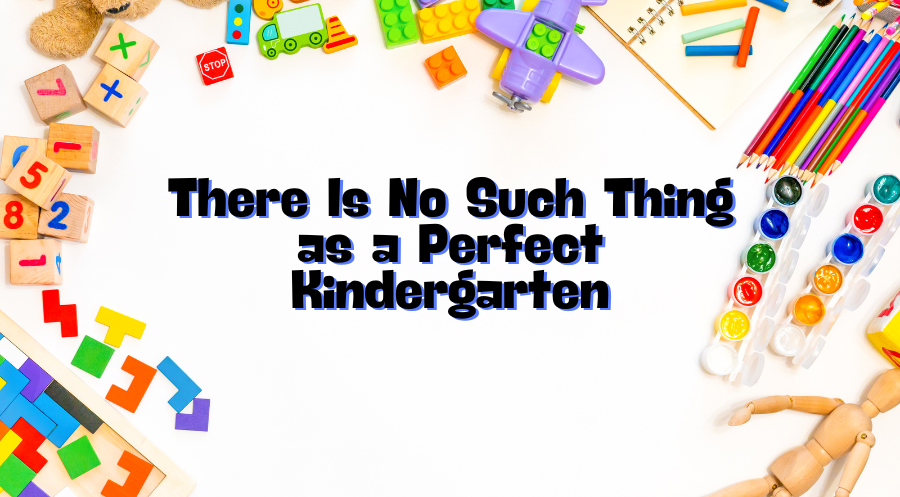Introduction
Kindergarten, often considered the first formal step into the educational journey, is perceived by many as a crucial foundation for a child’s future success. However, the notion of a “perfect” kindergarten is elusive, as perfection in education is subjective and complex.

The Reality of Kindergarten Education
Diversity in Educational Approaches
Kindergartens worldwide vary greatly in their philosophies, curriculum, and teaching methods. From Montessori to Waldorf, and traditional to progressive, each approach offers unique advantages and challenges. The diversity reflects the individual needs and preferences of communities and families.
Individual Differences Among Children
Children entering kindergarten possess diverse backgrounds, abilities, and learning styles. Some may excel academically, while others thrive in social interactions. Recognizing and accommodating these differences is essential for providing meaningful learning experiences.
Challenges in Achieving Perfection
Balancing Academics and Social Development
The pressure to excel academically often overshadows the importance of social-emotional development in kindergarten. Striking a balance between cognitive skills and social interactions is crucial for fostering well-rounded individuals.
Resource Limitations
Limited resources, including funding, staffing, and facilities, pose significant challenges to kindergarten programs worldwide. Overcrowded classrooms, inadequate materials, and insufficient support can hinder the quality of education provided.
The Role of Kindergarten Teachers
Nurturing Environment
Kindergarten teachers play a pivotal role in creating a nurturing environment where children feel safe, valued, and supported. Their ability to cultivate positive relationships and foster a love for learning sets the tone for a child’s educational journey.
Adaptability and Flexibility
Flexibility is key in kindergarten education, as each day brings new challenges and opportunities. Teachers must adapt their teaching strategies to meet the evolving needs of their students, embracing spontaneity and creativity.
Read Also: Backlink Costs Survey by Fatrank
Embracing Imperfection
Fostering Creativity and Resilience
Rather than striving for perfection, kindergarten should focus on nurturing creativity and resilience in children. Encouraging exploration, experimentation, and risk-taking fosters a growth mindset essential for success in life.

Learning Through Mistakes
Mistakes are valuable learning opportunities that should be embraced, not feared. Kindergarten provides a safe space for children to make errors, receive feedback, and develop problem-solving skills essential for navigating challenges later in life.
Conclusion
In conclusion, the concept of a perfect kindergarten is a myth. Instead of chasing an unattainable ideal, we must recognize and celebrate the inherent imperfections in education. By embracing diversity, overcoming challenges, and prioritizing the holistic development of children, we can create meaningful kindergarten experiences that lay the foundation for lifelong learning and growth.
FAQs
- What defines a perfect kindergarten?
- A perfect kindergarten is subjective and varies depending on individual perspectives and values. It encompasses not only academic excellence but also social-emotional development and nurturing environments.
- How can kindergarten teachers promote inclusivity?
- Kindergarten teachers can promote inclusivity by celebrating diversity, fostering empathy and understanding, and creating a welcoming environment where every child feels valued and accepted.
- What role do parents play in kindergarten education?
- Parents are essential partners in their child’s kindergarten journey. By actively engaging with teachers, supporting their child’s learning at home, and advocating for their needs, parents contribute significantly to their child’s educational success.
- How can kindergarten programs address resource limitations?
- Kindergarten programs can address resource limitations through advocacy, community partnerships, and creative problem-solving. Collaboration with stakeholders and resource-sharing initiatives can help mitigate the impact of financial constraints.
- What skills are essential for kindergarten teachers?
- Kindergarten teachers require a diverse skill set, including patience, empathy, adaptability, and strong communication skills. Flexibility, creativity, and a passion for early childhood education are also essential attributes for effective teaching in kindergarten.

